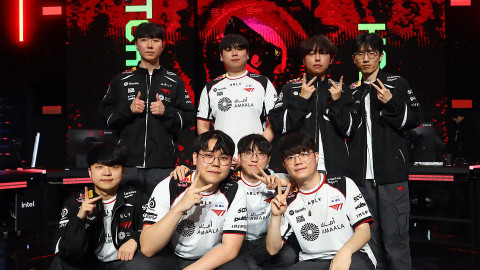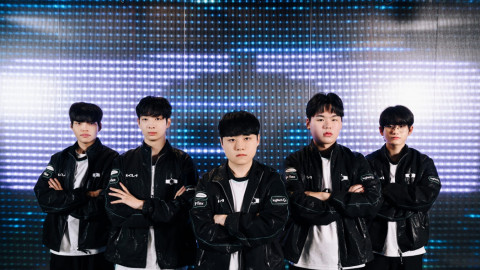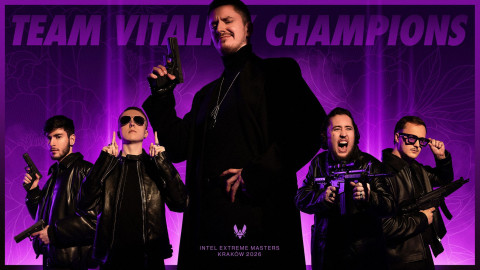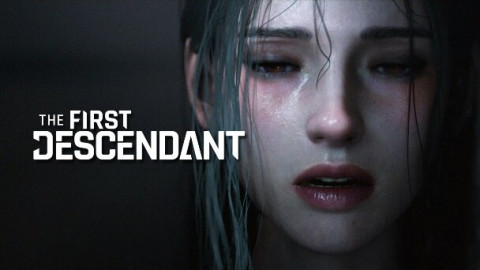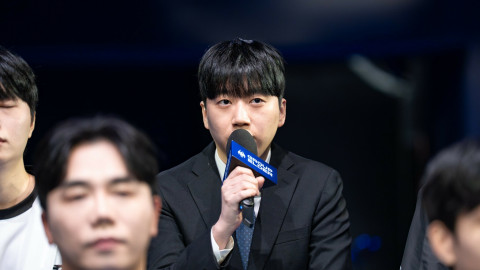
While it’s been quite some time since Maurice "Amazing" Stückenschneider has been involved in the competitive side of League of Legends, he hasn’t taken a break in thinking of ways he can help himself, his region, and his industry get better. He has always been someone unafraid to speak what he believes is true.
When Inven Global sat down to talk with him, there was no exception to that. From discussing the problems with League of Legends’ “war on merit”, to the issues he feels hold him back, Amazing stayed honest. Regarding his insights: the man lived up to his moniker.
On what it would take to come back
I wanted to first discuss how you’re doing in your current position. You’ve spent so much time being directly involved in the competitive aspect of teams, either as a manager or a coach, or a player. This is one of the only times where you’re solely focused on content. How has this year been for you in that sense?
It's been really relaxing in a way that I have time to cure some of the burnout that I've maybe accumulated over the years. You may not notice as much, but when you're at least away from stuff, you clearly figure out that it's relaxing, it's really shedding off all that extra weight that is on you. So that's been good.
And obviously, I've got to learn a lot about myself and I'll see the things I've missed out on as a player and a coach. Because as a coach, they're still within that bubble. You're still within that bubble of esports. So you don't really focus on your development outside of the game — things like taking care of your friends, taking care of your relationships properly, taking care of your family, the same way you would if you had a normal job. It's a different kind of living, and it's definitely opened my eyes to focusing on the bigger picture.
"I think Inspired and Elyoya could easily be contending for a top LPL or LCK spot in terms of jungling, if they just had the time to prepare and be part of that KR or CN solo queue."
You talked at the end of last year about how your motivation and drive to compete had depleted. It’s been a while since you made that statement, what do you think caused this for you?
Before last year, I had two splits where I kind of sat out and then came into the Summer Split with a new team — both with Schalke and 100 Thieves. In both cases, I think I had relative success. I was more taken aback by Schalke than I was with 100 Thieves, though I understand the reasoning to hire me for the next year.
But I guess that put a damper on my drive. Then I transitioned to coaching, then having a decent first split, then having a really bad second split, where it felt like a lot of things I stood for seemed to not be appreciated anymore. And I think that kind of killed my spirit. I'm not blaming anyone in particular because obviously, I'm really good friends with everyone that was involved. But I feel like there was a discrepancy between what I believe in and what's seems to be the general consensus among most younger players and management, and what they believe in and value.

How are you feeling now that you’ve had time to sort of reevaluate things,? Do you want to return to the more competitive side of the business?
Yeah. After having enough time and obviously recovering a lot of not just my mental but also my physical health — like being able to really dictate my days and being more flexible in that regard — I've regained love for it. And I think that's given me the prospect and the thought that I want to return to the competitive side, but I have now also established for myself that I will not legitimately go by or past my schedule. It's really about having some kind of authority over my day and how I operate it, and how I want to make myself better and have all those things established.
So for example, my daily routine: I know that things like scrimmages are a thing but I would definitely wanna be in a position where as soon as scrims are over, I can completely take time at my leisure and not have to rely on anyone else. Then obviously the exercising programs… I would probably want to partake in that, but then do my own thing, and really do it in my own time, and have it be my own prerogative, instead of having it be team-driven. And then obviously making sure that my social life is intact while I'm playing or competing. Whether that's playing or coaching, I would not forgo my social life anymore in favor of the team.
You said playing… Will we see Amazing in the LEC?
I don't know if I'm good enough for the LEC right now. I've been hovering around 400-500 LP for quite some time now. I still have four or five months to really prepare for the next offseason when the new hirings come in. But I do believe that at this point in time, even despite the content creation I'm doing right now, I'm actually at a point where I can see myself probably being able to compete with LEC players.
Obviously, I'd want to make an impact if I would compete again, so ideally I want to be at 800 LP Challenger, and obviously be able to beat every other player like at least 40% of the time that I would be facing, because I know that my competitive experience, in general, would carry me over to that 50% perfect mark in most teams, as long as I have some sense of agency within them.
Would you go back to coaching if a good opportunity came up, or are your eyes set on playing?
Playing is my main expertise and focus. It's also because of the difference between coaching and playing right as a player. What a lot of people have identified these days is that you have a lot more agency [as a player]. As a coach, you can obviously dictate whatever roster changes you can make but it doesn't quite replace what you can do in-game, especially as an in-game leader. I'm more of an in-game coach than an outside-of-the-game coach based upon my behavior patterns.

On the jungle meta: East vs West
I wanted to discuss with you junglers in Europe. It’s been really weird lately. Besides people like Elyoya and Treatz that play bloodthirstily, it seems players are very passive right now. Why do you think this is?
I would say that in general European junglers are really control-heavy. I think they all come from a relatively similar school of thought that I came from. After Season 5, when it was more about controlling the enemy and the pace of the game than it was about creating volatile leads, if that makes sense. That kind of sticks out.
I think that the European jungle meta is more akin to how Koreans view the jungle rather than how Chinese players view the jungle. That's where maybe the bloodthirstiness comes into play, where I think a lot of Chinese players go for 55/45’s or 60/40’s, whereas we tend to actually ignore those and go for more high-percentage plays, at least for the jungle.
Also, I think our bot lane focus and playmaking are slightly different. We don't quite think about bot lane the way they do in LPL where are lot of plays are happening: three-man, four-man — because both parties are just like handshaking and telling one another to fight. Whether that's a good or bad thing I don't know, but I think that's probably the reason why. More solo lane focus usually means less fighting and more control. And more bot lane focus, at least in the current meta, means more fight and less control.
"It felt like we had a huge almost culling of players that were kind of problematic, but were innately good."
When Inven talked with Selfmade, he stated he feels that junglers from Korea are like this too, they just have better knowledge for when to gank. Do you agree with this?
I don't think they have better knowledge, I think Koreans are more driven towards a gameplan. And the gameplan is usually obviously implemented by the coach, which kind of gives this frame that they work within. If they don't abide by that frame... I'm not saying they'll face repercussions but that's kind of how it works in terms of the Korean culture from what I've seen: they really abide by the elders or the coaching staff, so most gameplans are really strict. And you don't really want to make or break that gameplan, because you believe in it to be good. That's what a lot of Korean junglers are doing.
I do, however, believe the cream of the crop, the top Korean players, are slightly different in the way that they seem to be controlled but also seem mechanically able to actually execute those in-your-face plays. Besides Karsa — at least from what I've seen of the LPL — I don't think most LPL junglers are able to put two and two together; they don't quite know how to play controlled and play in-your-face 24/7. They'd rather just choose the latter, and they don't quite have the strict gameplans that can enable them to hone that skill of playing controlled.
How far behind do you think European junglers are overall to those in the East?
I think the average European is definitely far behind. I think the top-tier junglers in EU are just slightly behind, and they would just need to have a Korean or LPL bootcamp to regain that ability. Because quite frankly, the super servers in China and the Korean server give the unique ability of continuously playing meta champions only versus each other and then having these early skirmishes 24/7. The mechanical ability is definitely being honed there more than here because European solo queue just functions differently and so do European scrims.
I think Elyoya, Inspired, even Jankos — who has looked mechanically worse than the other two — can get up to that level. Beyond that, I'm not quite sure who'd be in a similar vein. But I think Inspired and Elyoya could easily be contending for a top LPL or LCK spot in terms of jungling, if they just had the time to prepare and be part of that KR or CN solo queue.

You’ve played in both NA and EU so I wanted your opinion on this. The “optimal” playstyle has become more fast and loose than it was 3+ years ago when you were probably in your prime, because of changes to vision, objectives, larger early opportunities for gold income, etc. Do you think it’s harder now to evaluate regional strengths compared to the past?
Yeah, because there's no perfect way of playing anymore, I would say. There are ways that are close to perfect, like 95% or 90%. But most playstyles have some kind of innate counter. That means even if you try to play perfectly, by the book, like in the good old days, you'd suddenly run into counters.
For example in the early game, you look for the six camps into crab clear, with ideally two winning lanes. But then suddenly they attack the mid prio and then get your crabs. It's just one generic point, but I don't think there's a perfect playstyle that is to be emulated, so you can't evaluate which region is the best. You can only make assumptions. Based on what I've seen I would say the LPL is the best. I think LCK is probably second. Top EU teams I think are tied if not better than the LCK teams, but I think the average level in the EU is worse than the LCK. But the LPL is by far superior in my opinion.
"Merit, which is basically 'Can this player help us win, yes or no?' is partially being ignored in favor of plans that people have established, who may not have known as much about esports and LoL than they would like to admit."
On the "war on merit"
You stated recently a lot of the things happening in the pro scene feel like a deviation of what you believe these leagues should be about. Can you elaborate on this? What are the glaring problems in western League of Legends that you see right now?
I'm not sure if this is exclusive to Western League of Legends, but I know this is really franchising-related. So to begin with, when we look at how franchising evolved — especially in EU because I know more about it than NA — it was obviously a way for organizations to buy themselves in, and then create their own kind of plans for the future. Whether that's content plans, how they want to orchestrate their rosters, how they want to orchestrate management, etc. And it felt like we had a huge almost culling of players that were kind of problematic, but were innately good. We had players like me who were kind of taken out. Then sOAZ got in I think because of some prior merit to a certain extent — at least people still appreciated him because he went to the Worlds Finals. But even he kind of had to settle for maybe a different team than he would've like to.
It seemed like a lot of these teams took players that were more akin to what their philosophy was at that moment. But that philosophy wasn't always “winning”. Not every team seemed to have wanted to win.
So that is already the innate issue I see with a lot of the things that are happening. Merit, which is basically "Can this player help us win, yes or no?" is partially being ignored in favor of plans that people have established, who may not have known as much about esports and LoL than they would like to admit. And that kind of snowballed over the years, where we've seen rosters, who instead of dropping out of the league — which would've happened because they placed like 8th or 9th twice in a row and would've been relegated — got to stay in the league.
And they obviously got to evolve and get better at what they're doing and try to get to the point of winning, but some rosters have never developed that, and some teams have never developed that understanding of what it takes to win with League of Legends. So instead of actually just admitting that they are in that spot, they just kept having this war on merit, where they kept ignoring the pleads of people that actually knew what was going on and what had to be happening, and instead favored people who were silent and kind of fit in more.
I think it's a wrong way to approach sports, much less esports because while problematic individuals may be issues to settle, a lot of them have shown passion. They have that merit, they have the ability to win. Continuously ignoring that shows that it's better to just shut up, do whatever your team is doing or wants you to do, and just be a follower, rather than being a person that wants to take agency.
That's been my experience, and I think that's something that I don't think should be part of the competitive scene, because of how I grew up with it. When I grew up with it, it was really innocent. People competed against one another, then met their friends at LAN events. Then they had a couple of drinks together and played the next day. And that was it. And over the years, it evolved into a moneymaking scheme. I don't want to get into a discussion about capitalism but it's obvious that it's been corrupting some of the decision-making. Sometimes it’s about saving money in certain cases when they shouldn't save money. And sometimes it’s about driving down player prices or player salaries in favor of I guess I'd say economic situation.
So, we see a lot of rookies being taken that shouldn't have been taken in the first place in favor of veterans that should've been there in the league. And the same goes for some coaching staff where some are being ignored because they could potentially be upsetting towards that management. And I think that's the wrong way to go about it.

On the topic of veterans, what did you think about the Dardoch situation? Was he a veteran that got squeezed out?
No, I think Dardoch is probably just too toxic. I mean, you don't get kicked from 10 rosters… I mean he basically made the whole league. He made every team, and he got kicked from every team. When that happens, at some point — at least after the third or fourth time — when the reason is that you're problematic. It can't be that everyone was wrong, it might just be that you're wrong.
And I think Dardoch's case is slightly special. I would say that… Who's a better example? I'm a decent example, I think that even Goldenglue is a decent example. And I'm not sure if he's in the field of trying to take agency a lot of the time, but he definitely has merit. But he keeps getting passed over or being kicked or removed from rosters after some time because he seems to be in the middle of things, where's he's not the best, but he's also better than most of the rookies. So everyone is just trying to get that one rookie that is able to replace him at some point, and then he's hopefully going to be popping off. And then they realize, "Oh, this rookie's actually not leveling up into the kind of player that we wanted, let's get Goldenglue back."
And I think that's a really weird way of viewing the scene. And that's what a lot of GMs are doing. They're playing puzzles, instead of actually analyzing what team rosters should be about, which is a balance of veteran leadership and mechanical ability. You need to have the brains, but you need to have the brawns. And a lot of owners, GMs, or coaches are passing over the brains because they think they are better at conveying information than the players are. Which is quite stupid, because you're not playing the game. Even if you're the best person at conveying information, even if you're the best teacher of all time — if you don't have the brains to pick up that knowledge, how is it gonna help you in-game? It isn’t.
We see this time and time again where coaches that have been heralded as smart, trying to teach players that are not intelligent enough, and then these rosters fall apart. So, create that balance, and respect the brains on the team. That's what's not being done. And I think brains are at least 50% of the game; it used to be 80%—but it's probably like 50/50 right now.
On team-building, player contracts, and... family
Jankos stated recently one of the reasons for G2's bad performance last split was the lack of a team-building environment. Do you think this is a big reason why they have been underperforming?
I won't suggest so. I'm not sure how much that it accounts for. But what I will say is that having a familial atmosphere is obviously beneficial in a lot of ways. And I think the main reason is that even if you hate your family, you usually stand by them. That's how it works. When you go to Thanksgiving, go back home for Christmas — everyone may just be throwing shit at one another but you still realize this is your family and there's nothing you can change about it. What I mean by that is that if you analyze the teams and realize "Hey, we're stuck with one another for two years", if you have that kind of attitude, you treat one another differently. You become more forgiving and lenient. And while you still have the discussions that you need to have, because you're really familiar with one another, you're not going to create traps for the other person to fall into.
"Regi was someone who, despite his brash nature, his blunt approach, still created a family. He still created a team that was sticking together. And while I've had this in my youth, I didn't have it in esports until then."
If you're on a team that kind of knows "Okay, we can at any point exchange a member", if you're someone that has great influence and ability, you're gonna try to get everyone that is bad kicked out. It sounds stupid, but that's how a lot of teams function, where it doesn't feel like that they work towards a common goal, but they'd rather work for individual goals. And if someone doesn't agree with someone else, instead of actually trying to work around that, they create steps to get that person out of the team. Or create a situation where that person's unable to perform anymore, and they'll be even more of a black sheep within the team.
What should and has to happen is that you create that familial atmosphere. That each one of you has a specific role to play for the greater team effort is something that a lot of teams don't quite understand. That familial atmosphere — without having ulterior motives — is really important to succeed. To my estimation, I've seen this work more so than it hasn't. I've never seen it not work.
People can't learn this unless someone else brings it to them. And I've had the great fortune of having this taught to me by Regi back in the gold old days. Because Regi was someone who, despite his brash nature, his blunt approach, still created a family. He still created a team that was sticking together. And while I've had this in my youth, I didn't have it in esports until then. All of us stuck together. I've been brought into other teams, and it's worked many times. This is something you cannot teach. You need to experience it personally.
This is also why I heavily disagree with the heavy focus on analysis from certain people within the scene — they keep trying to alienate the human element from the game. It's a very human game. It's five players organizing themselves against five others. The human element is far greater than people like to admit. You can play the best League of Legends you can play. You can play to your most amount of expertise. But you're gonna fall flat if the other team legitimately cares more about one another and creates more gameplans that are figuring out one another's mistakes. Because then you understand "Hey, we can cover these mistakes, we can cover these issues with that", and you become a stronger team because the weakest link is non-existent anymore. I wish teams were more understanding of that aspect of the game.

Is that why in the past you’ve been someone to advocate the leagues go in a more player-run direction like the NBA? Do you think it would work in that sense?
Yeah. The difference between the NBA especially and League of Legends right now is that players have a players union. The players association in the NBA really has a lot of impact; when it comes to contract negotiations, when it comes to collective bargaining agreements — there's a body that is representative of the players in a lot of ways. And they can vote for whoever they want to have themselves be represented by. And having that kind of body as a counterweight to the owners would do a great deed. Because suddenly you can decide a lot more.
I think a lot of the rookie contracts, for example — despite their best efforts — are shit. They are by definition terrible because they only guarantee a year of contract. But what does a year mean? Let's say someone drops out of school. He stays for a year. What does it do? He stays for a year, and then he's kicked. He may have made $100,000 or whatever it is within that timeframe, but that's not gonna last him a lifetime. Suddenly he's being thrown back into the regional scene. So is that really something we want to advocate for when we want to implement rookies?
"It's been an openness to a fault, where sometimes I think I'm too open and thus give teams too much insight and maybe make them afraid of what kind of personality I could be."
I, for example, think they should have at least a two-year contract. And I think that any contact that is being put out should at least be a year long. They should not be half a year, ever. Everyone should have the safety for a year. And then no one should be able to get kicked within that year. Is that really being implemented yet? Partially, but not enforced in the same way as the collective bargaining agreement.
That's been something the players have had to do through their agents, instead of having a representative body. And then players have had less agency within the teams' decision-making. While they basically create the revenue — let's be real, without the players there'd be no league — they are being seen as utensils to create something for the teams themselves. They're seen as billboards of advertisements. They're supposed to bring them to Worlds and get more international revenue. And I feel like the competitive aspect of League of Legends gets lost because they don't quite think about it as "We wanna win, that's why we put in that effort." No, it's "We wanna be everywhere on all the billboards. We wanna make sure we're seen everywhere as a team. That's why we put the money in."
It doesn't quite have the same attention to detail as the other thing would have. If your objective is to win, you do everything to win. If your objective is to make the most money, then it's obviously a different objective. So the steps along the way are going to become distorted by comparison and to a certain extent perverted.
Something that really stuck with me as I’ve been following your career is how self-reflective you are, especially when you made that Tweet that you wanted to rediscover what your name should mean? If you had to say now what your name meant, what would it be?
I hope it means being upright. I think that's at least what I've tried to stand for. And transparency. Especially transparency. I think that's what I view myself as most. I've been really open about everything I've been doing throughout my career and what I've seen throughout my career. And it's gotten to the point where — this may sound maybe a bit cocky — I somehow get lost in the martyrdom a bit, instead of just trying to be the best player I can be.
It's been an openness to a fault, where sometimes I think I'm too open and thus give teams too much insight and maybe make them afraid of what kind of personality I could be, instead of letting them discover themselves. That openness and transparency are what my name means right now. But what it should mean is to strive for greatness. I've always been a big Kobe fan throughout my life, ever since I discovered the NBA in like 2004. And I think I kind of have had that "Mamba Mentality" for quite a while, especially in Seasons 4 and 5. And I think that's what I've been trying to rediscover over the years instead of getting lost in trying to make the scene better for other people. Obviously, I'm still trying to do that, but it shouldn't come at the cost of my own career.
Well, Kobe achieved greatness with Shaq, and after a few years achieved it again. Perhaps there are some parallels.
He had his run-ins because he was quite confrontational. I don't want to compare myself with him, because obviously I’m far from him, but I think there are some of the character things I've picked up from him, watching him other the years. That openness and willingness for controversy. And I think that willingness for confrontation has been something that's really imprinted on me because it's about telling whatever you think is true, at the very moment.
All images via: Riot Games
-

I write. I rap. I run. That’s pretty much it.
Sort by:
Comments :0

